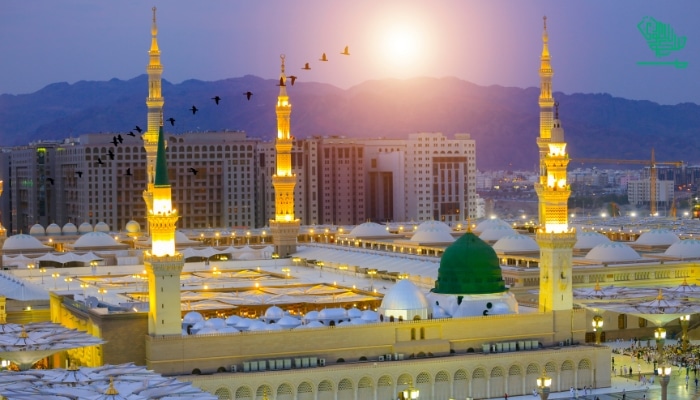The Prophet’s Mosque in Madinah, also known as Masjid al-Nabawi, is considered a highly revered location in Islam. The Imams of this mosque are held in high regard within the Islamic community due to their role as prayer leaders, spiritual guides, and educators who are responsible for upholding and passing on the traditions of Islam.
Historical Background
The Prophet Muhammad (PBUH) served as the initial Imam of Masjid al-Nabawi, leading the early Muslim community in prayer and providing guidance based on the Quranic revelations. Following his death, the caliphs and later leaders assumed the role of Imam, upholding the tradition of leading the community in worship at this revered location.
Throughout history, numerous esteemed scholars and religious leaders have served as the Imam at Masjid al-Nabawi, chosen for their extensive understanding of the Quran and Hadith, their devoutness, and their skill in guiding and connecting with the Muslim community.
The Role of the Imam at Masjid al-Nabawi
The main duty of the Imams at Masjid al-Nabawi is to lead the five daily prayers, the Jumu’ah (Friday) prayer, and the Taraweeh prayers during Ramadan. Additionally, they are responsible for delivering sermons, providing religious guidance, and offering spiritual support to the numerous Muslims who visit the mosque annually.
The Imams at Masjid al-Nabawi participate in educational activities, instructing on Quranic studies, Hadith, Fiqh, and other Islamic sciences. Their teachings are widely respected by Muslims worldwide and are essential in nurturing the spiritual and intellectual vitality of the global Islamic community.
Current Imams of Masjid al-Nabawi
- Sheikh Ali bin Abdur-Rahman al-Hudhaifi: Well-known for his extensive understanding of Islamic law and his melodious recitation of the Quran. He has been leading prayers at Masjid al-Nabawi for a long time, earning respect as a prominent religious figure in the Muslim community.
- Sheikh Abdul Mohsen al-Qasim: Sheikh al-Qasim is highly respected for his articulate sermons and extensive knowledge of Islamic law, making him a revered figure among worshippers. His speeches cover various spiritual and societal topics, providing valuable guidance to Muslims globally.
- Sheikh Ahmed bin Ali al-Hudhaifi: Sheikh Ahmed, the son of Sheikh Ali al-Hudhaifi, has taken after his father and currently holds the position of Imam at Masjid al-Nabawi. He is recognized for his articulate Quranic recitation and dedication to Islamic studies.
- Sheikh Khalid al-Muhanna: Sheikh al-Muhanna is recognized for his fervent speeches and strong bond with the community. His guidance during worship, especially in the holy month of Ramadan, has garnered widespread respect.
How to Become an Imam at Masjid al-Nabawi
Becoming an Imam at Masjid al-Nabawi is a prestigious and challenging achievement that necessitates a strong foundation in religious knowledge, spiritual devotion, and leadership skills. The process involves:
- Extensive Islamic Education: Potential religious leaders usually start their path by receiving extensive training in various aspects of Islamic knowledge, such as the Quran, Hadith, Fiqh, and other related subjects. They often pursue their studies at prestigious institutions like Al-Azhar University in Egypt or the Islamic University of Madinah.
- Quranic Mastery: One of the essential criteria is proficiency in reciting the Quran. Potential Imams should have memorized the entire Quran and have a thorough comprehension of its meanings and interpretations. They should also be proficient in Tajweed, the correct recitation of the Quran.
- Experience as an Imam or Scholar: Candidates for a position at Masjid al-Nabawi typically have extensive experience as Imams or Islamic scholars in other mosques or institutions before being considered. They must show proficiency in leading prayers, giving sermons, and offering religious guidance to the community.
- Character and Piety: The Imams of Masjid al-Nabawi are required to demonstrate exemplary behavior and piety in both their public and private lives, reflecting the highest ethical and moral standards of Islam.
- Recommendation and Selection: The Ministry of Islamic Affairs in the Kingdom of Saudi Arabia manages the selection process. Candidates can be nominated by senior scholars, religious institutions, or current Imams. The final decision is made after a thorough assessment of the candidate’s expertise, background, devotion, and leadership skills.
- Appointment: After selection, the candidate is officially appointed as an Imam of Masjid al-Nabawi. It is both a great honor and a heavy responsibility to be appointed Imam, as the Imam becomes a spiritual leader for millions of Muslims worldwide.
The Impact of the Imams of Masjid al-Nabawi
Masjid al-Nabawi’s Imams have a far-reaching influence beyond the mosque’s walls. Through recorded sermons, live broadcasts, and written works, they reach Muslims around the world. In addition to shaping the religious discourse within Islam, they also address the spiritual and social challenges facing Muslims today.
The Imams of Masjid al-Nabawi are also seen as custodians of the mosque’s rich history and traditions. The teachings of the Prophet Muhammad (PBUH) and the early Muslim community are preserved and handed down to future generations through them.
Conclusion
In the Islamic world, Masjid al-Nabawi’s Imams hold a unique and revered position. Their roles are not only to lead prayer but also to educate, guide, and mentor. In doing so, they continue to preserve the legacy of the Prophet Muhammad (PBUH) and ensure that Masjid al-Nabawi remains a beacon of Islamic faith and learning all over the world.
DISCLAIMER: The images/videos/logos showcased on this page are the property of their respective owners. We provide credit and sources wherever possible. However, If you find that your image/video is displayed on this blog without authorization, please contact us with the relevant details, and we will promptly address your concerns.

Hey there, I’m Hassan, straddling the worlds of content writing and studying textile sciences. When I’m not immersed in fabrics and threads, I’m lost in the melody of songwriting and music creation. From crafting lyrics to performing tunes, I find my rhythm in both the written word and the harmonies that fill the air.




